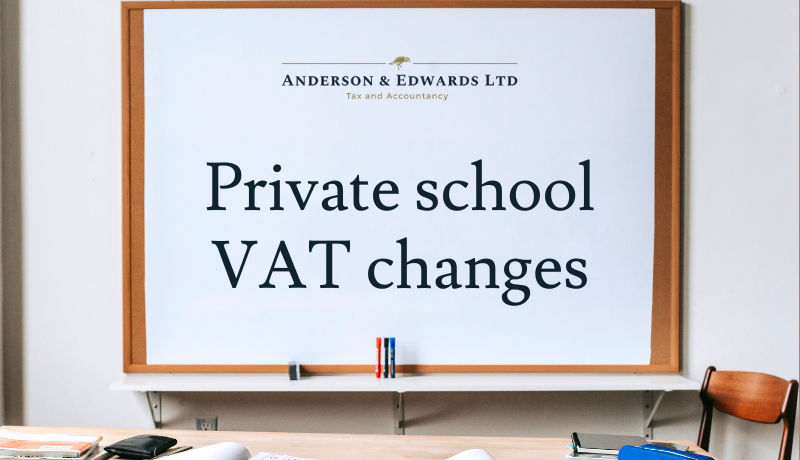
The introduction of VAT on some private school fees has been controversial. For the schools at the centre of this change, the immediate challenge is to review and revise their accounting systems to handle something that will be an entirely new tax for many schools. While the technicalities of VAT are clearly key, they are very much the tip of an iceberg here. Thankfully the tax profession has experience of advising on comparable situations in other sectors and should be able to assist.
The announcement that VAT will be applied to supplies of education, provided by private schools, has proven to be an emotive one; it has generated a lot of discussion. Even setting the politics aside, it is clear that private schools are now faced with a huge administrative challenge to ensure they can comply with the change, yet they have a comparatively tight timescale to complete the task. However, while the timescale is extraordinary, the task itself is perhaps not… and the first step has little to do with VAT law.
When discussing the issue with a potential client, they were relieved to know there are people out there who understand the scale of change facing the private school sector. Some insight should not be a surprise; this kind of change is something the tax profession advises on routinely because many businesses evolve over time or develop a side-hustle to augment their income. It is not unusual for an established business in one area to branch out into a similar activity where the VAT rules are different: in VAT jargon they become ‘Partially Exempt’.
For example, a funeral director (VAT Exempt) might branch out into floristry (not exempt), likewise a nursery might start catering children’s parties at weekends, a farm (not exempt) could convert workers’ cottages into rental properties (normally VAT exempt), or rental properties can be repurposed as AirBnB/holiday lets (not exempt).
All these changes create the same core issue now facing private schools: so far as VAT is concerned the trader has a mix of income sources, and VAT only applies to some of them. They have to understand what VAT applies to each of their various activities. Then, they need systems in place that accurately track where all income has come from, so that any VAT due can be accurately accounted to HMRC.
Unfortunately, the work does not stop there. Registered traders are able to recover VAT they’ve incurred on the costs they’ve paid out, but only to the extent that the VAT incurred can be ‘directly attributable’ to activities where VAT is being charged to customers. They have to calculate a ‘fair and reasonable’ cost apportionment between the activities that have generated VATable income, and the activities that have generated VAT Exempt income.
This means the taxpayer has to understand how any VAT it pays out is connected to each service it performs for customers. And, again, a system is required to accurately track all expenditure. Once expenditure has been analysed, a calculation is performed to determine what ‘attributable’ VAT can be recovered from HMRC
Sadly, the ‘standard’ calculation method prescribed by HMRC does not always produce the ‘fair and reasonable’ result stipulated in legislation. Therefore, any Partially Exempt business should ideally review its position to consider if a ‘Partial Exemption Special Method’ (PESM) would be appropriate. Any PESM has to be individually negotiated with HMRC, in advance, and requires a material commitment in terms of time and effort to understand the position, and work with HMRC to reach agreement. However, a well thought through PESM can help businesses ensure they recover the maximum VAT legitimately due to them.
The technical VAT part here is only the tip of an iceberg that relies heavily on accurate bookkeeping and financial planning/analysis. For private schools, the immediate challenge is therefore about rapidly revising their systems so they can build a picture of how any VAT on their expenditure relates to the newly taxable income stream they have. This will, in turn, mean that any tax advice they receive on how to optimise their VAT recovery is based on sound numbers and optimises their position as far as possible.
At Anderson & Edwards we have both accountants who can assist with systems, and tax advisers who can help tailor the VAT rules to specific organisations. If you have any questions about VAT or any other tax changes, feel free to give us a ring on 0131 364 4191 or email Enable JavaScript to view protected content..
© 2025 Anderson & Edwards Ltd|Registered in Scotland SC678768|Privacy Policy|Website by Broxden